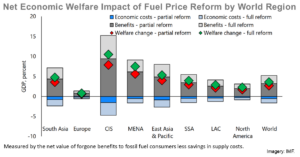Globally, fossil fuel subsidies were $7 trillion in 2022 or 7.1% of GDP. Explicit subsidies – the undercharging for supply costs – have more than doubled since 2020. This equals 18% of the total subsidy, while nearly 60% is due to undercharging for global warming and local air pollution. Differences between efficient prices and retail fuel prices are large, for example, 80% of global coal consumption was priced at below half of its efficient level in 2022. Full fossil fuel price reform would reduce global carbon dioxide emissions (CO₂) to an estimated 43% below baseline levels in 2030 (in keeping with global warming to 1.5-2ᵒC). It could raise revenues worth 3.6% of global GDP and prevent 1.6 million local air pollution deaths per year and lead the transition to clean energy.
Black, Simon, and Antung A. Liu, Ian Parry, Nate Vernon. "IMF Fossil Fuel Subsidies Data: 2023 Update". International Monetary Fund. August 2023. https://www.imf.org/... (Contributed by Gregory Autin).
Posted on 11/03/25
Recent Abstracts
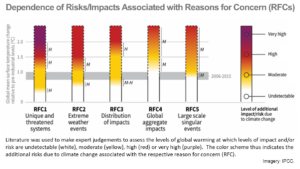
Uncertainty and Climate Change: The IPCC Approach vs Decision Theory
Uncertainties characterizing climate science, the economy and their interrelationships are a compelling argument for considering ambiguity and misspecification in the economics of climate change. The Intergovernmental Panel on Climate Change's (IPCC) approach to dealing with uncertainty is like risk as defined in deci ...
Posted on 03/04/25
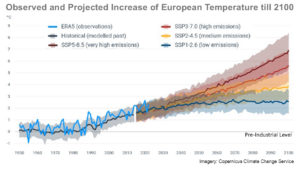
Could Climate Change Be Worse Than We Thought? New Models Say Yes
Scientists at EPFL (École Polytechnique Fédérale de Lausanne) have developed a climate model rating system and classified climate model outputs generated by the global climate community and included in the recent Intergovernmental Panel on Climate Change (IPCC) report. The tool evaluates the climate models and reveal ...
Posted on 03/04/25
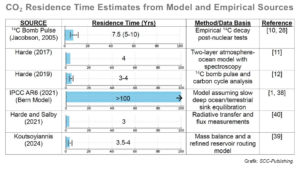
A Critical Reassessment of the Anthropogenic CO₂-Global Warming Hypothesis: Empirical Evidence Contradicts IPCC Models and Solar Forcing Assumptions
The Intergovernmental Panel on Climate Change (IPCC) attributes observed climate fluctuations primarily to anthropogenic CO₂ emissions and claims that these emissions have caused a net radiative forcing of about 1 Wm-² (watt per square meter) since 1750, resulting in a global temperature increase of 0.8 to 1.1 °C. Thi ...
Posted on 03/04/25
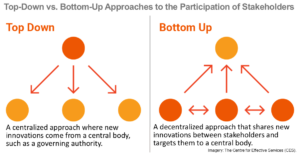
Synergy Solutions for Climate and SDG Action: Bridging the Ambition Gap for the Future We Want
Bottom-up data is key for addressing distributional impacts, as data on social dimensions often comes from local stakeholders. Good examples of localized data exist that help understand the disproportionate impact of climate change and disasters across sectors, populations, and geographies. Data collection methods, s ...
Posted on 27/03/25

High-Level Political Forum on Sustainable Development
The High-level Political Forum on Sustainable Development (HLPF) is the central United Nations platform for the follow-up and review of the 2030 Agenda for Sustainable Development and its 17 Sustainable Development Goals (SDGs). The HLPF brings together ministerial and high-level representatives of governments, as wel ...
Posted on 26/03/25

‘I’m at a total loss for words at how hostility toward science has escalated in the U.S.’
“I’m at a total loss for words at how dramatically the rejection of knowledge, hostility toward science – and censorship – have escalated. […] But one thing that has already shocked me is this: a hurricane is such an immediate and tangible threat – there should be no ideological debate about it. [… ...
Posted on 25/03/25

SDG Transformation Center
The SDG Transformation Center platform brings together tools and actionable instruments to support SDG data, policies and financing building on the latest insights from science and collaborates with stakeholders and decision makers. Its SDG Index and Dashboards rank countries on SDG attainment and report global SDG pr ...
Posted on 24/03/25
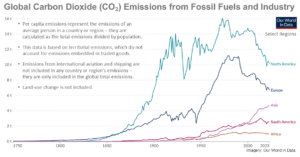
SDG Tracker: Measuring progress towards the Sustainable Development Goals
The SDG Tracker presents data across all available indicators from the Our World in Data database using official statistics from the United Nations and other international organizations to facilitate monitoring of progress on the UN Sustainable Development Goals (SDGs). It is kept up-to-date with data and SDG developm ...
Posted on 21/03/25
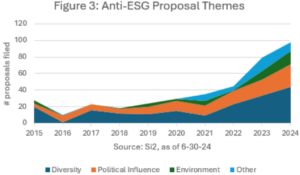
Anti-ESG Proposals Surged in 2024 But Earned Less Support
Anti-ESG proposals flooded U.S. corporate annual meeting agendas in 2024 by shareholder proponents who do not support limiting corporate environmental impacts, promoting diversity, or providing investors with more ESG disclosure, filing more than 100 shareholder proposals as of June 30, 2024. Support averaged only 1.9 ...
Posted on 19/03/25
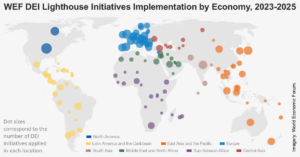
Diversity, Equity and Inclusion Lighthouses 2025 – Insight Report
Research consistently demonstrates the long-term benefits of inclusive policy-making and sustained diversity and inclusion programs, making inclusion a strategic imperative that promotes sustainable growth and resilience in the face of global risks and challenges. Anchoring diversity and inclusion in the business worl ...
Posted on 19/03/25
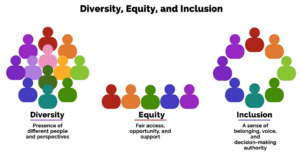
Diversity, Equity and Inclusion (DEI)
Diversity, equity and inclusion (DEI) are different but complementary concepts. Diversity focuses on the representation of different groups in the organization. Equity recognizes that each person has different circumstances and needs. Inclusion is about involving individuals and groups with their unique personal cha ...
Posted on 19/03/25
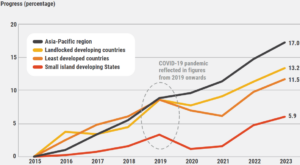
Navigating Association of Southeast Asian Nations-Republic of Korea (ASEAN–ROK)’s Development Cooperation Agenda in Post-2030 Dialogue: Potentials and Challenges
The Association of Southeast Asian Nations (ASEAN) and Southeast Asian countries have been engaging more visibly and actively in the Sustainable Development Goals (SDGs) dialogue than the millennium development goals domain. However, ASEAN has not been observed championing Agenda 2030 and retaining the SDGs on the glo ...
Posted on 18/03/25
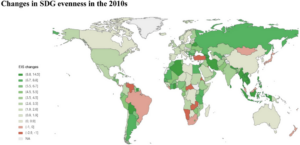
Scientific Evidence on the Political Impact of the Sustainable Development Goals
In 2015, the United Nations agreed on 17 Sustainable Development Goals (SDGs) as the central normative framework for sustainable development worldwide. The effectiveness of governing by such broad global goals, however, remains uncertain and the question arises whether these 17 SDGs have had any political impact withi ...
Posted on 18/03/25

SDGs and Inflation
The term "greenflation," which combines "green" meaning decarbonization and "inflation" meaning rising prices, has become widely known. As investment in fossil fuels has been curbed, demand for natural gas, which can have lower greenhouse gas emissions than coal, has increased, causing energy prices to rise. Addressi ...
Posted on 18/03/25

Scientists Alarmed: Lack of Political Action against Climate Change
Six out of nine planetary boundaries have already been breached with the seventh is about to be breached, too. Despite global promises, crucial policies fall short, which causes alarm amongst scientist. Carbon emissions are on the rise, natural feedback loops spiral downwards, and essential biodiversity targets remai ...
Posted on 18/03/25

